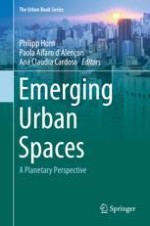2018 | OriginalPaper | Buchkapitel
3. Emerging Urban Indigenous Spaces in Bolivia: A Combined Planetary and Postcolonial Perspective
verfasst von : Philipp Horn
Erschienen in: Emerging Urban Spaces
Aktivieren Sie unsere intelligente Suche, um passende Fachinhalte oder Patente zu finden.
Wählen Sie Textabschnitte aus um mit Künstlicher Intelligenz passenden Patente zu finden. powered by
Markieren Sie Textabschnitte, um KI-gestützt weitere passende Inhalte zu finden. powered by
